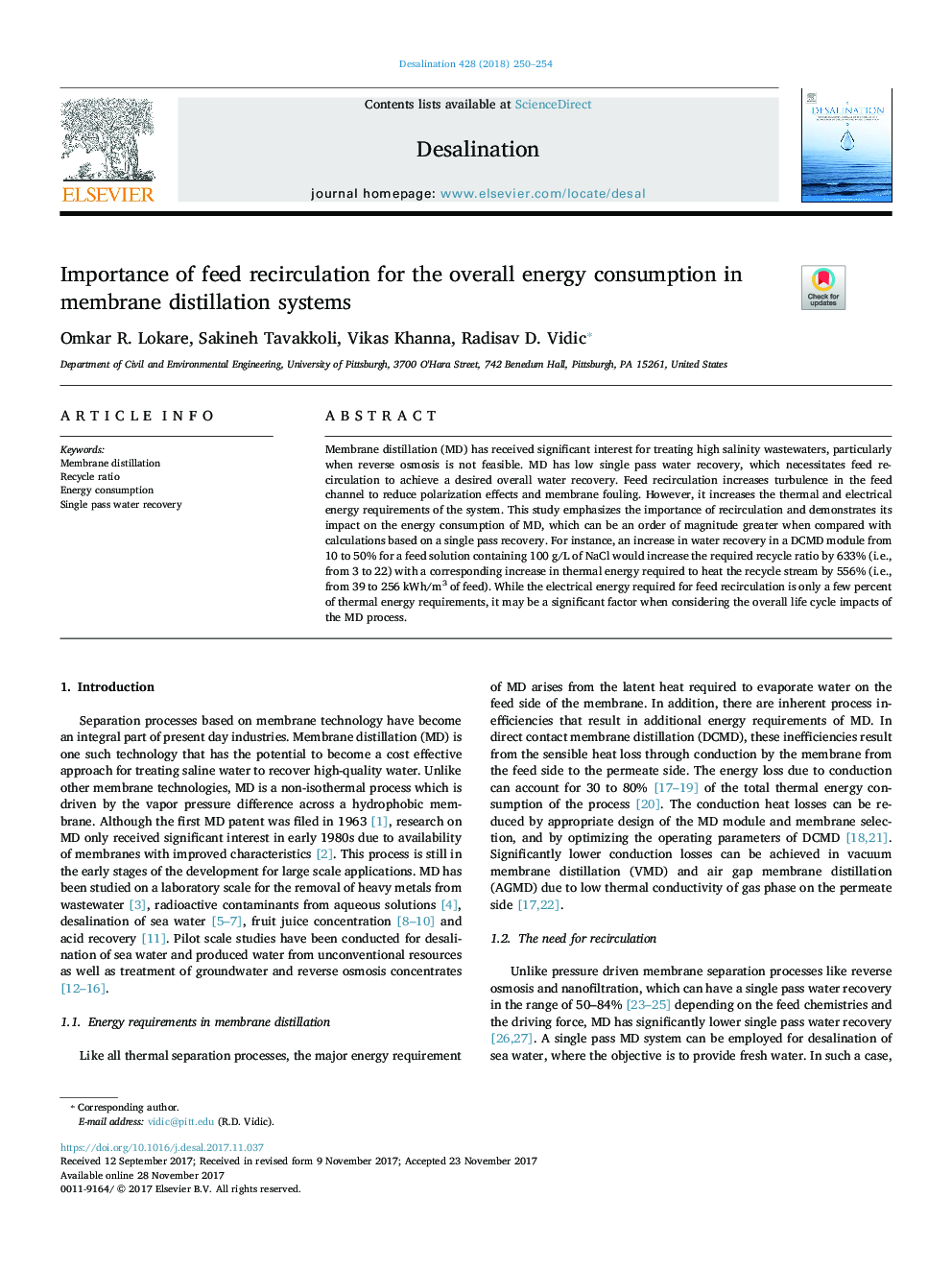| Article ID | Journal | Published Year | Pages | File Type |
|---|---|---|---|---|
| 7008106 | Desalination | 2018 | 5 Pages |
Abstract
Membrane distillation (MD) has received significant interest for treating high salinity wastewaters, particularly when reverse osmosis is not feasible. MD has low single pass water recovery, which necessitates feed recirculation to achieve a desired overall water recovery. Feed recirculation increases turbulence in the feed channel to reduce polarization effects and membrane fouling. However, it increases the thermal and electrical energy requirements of the system. This study emphasizes the importance of recirculation and demonstrates its impact on the energy consumption of MD, which can be an order of magnitude greater when compared with calculations based on a single pass recovery. For instance, an increase in water recovery in a DCMD module from 10 to 50% for a feed solution containing 100Â g/L of NaCl would increase the required recycle ratio by 633% (i.e., from 3 to 22) with a corresponding increase in thermal energy required to heat the recycle stream by 556% (i.e., from 39 to 256Â kWh/m3 of feed). While the electrical energy required for feed recirculation is only a few percent of thermal energy requirements, it may be a significant factor when considering the overall life cycle impacts of the MD process.
Related Topics
Physical Sciences and Engineering
Chemical Engineering
Filtration and Separation
Authors
Omkar R. Lokare, Sakineh Tavakkoli, Vikas Khanna, Radisav D. Vidic,
